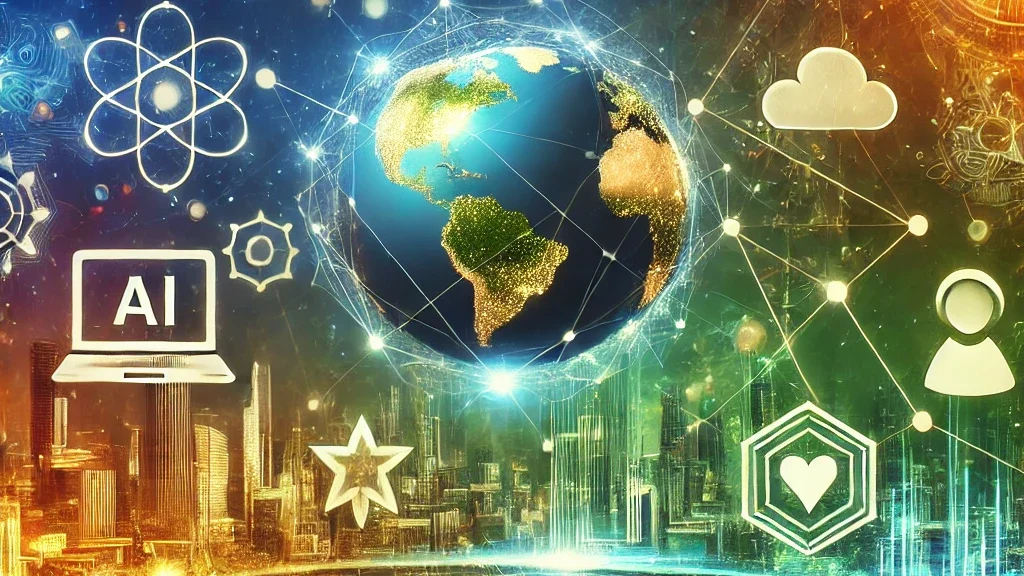
AI in Medicine: Revolutionizing Healthcare for a Better Future
Artificial Intelligence (AI) is rapidly transforming industries across the globe, and the medical field is no exception. With its ability to analyze vast amounts of data quickly and accurately, AI is opening up new possibilities for diagnosis, treatment, and patient care. In this blog post, we’ll explore how AI is revolutionizing healthcare, from early detection of diseases to personalized treatment plans, and the challenges that come with its integration.
1. AI for Early Diagnosis and Detection
AI-powered systems can analyze medical images, such as X-rays, MRIs, and CT scans, with incredible precision. These systems can detect abnormalities in images that might be missed by the human eye, aiding in the early detection of diseases like cancer, heart disease, and neurological conditions. For instance, AI algorithms have been shown to outperform radiologists in detecting breast cancer in mammograms and lung cancer in chest X-rays.
Early diagnosis is crucial for improving patient outcomes. The quicker a condition is detected, the sooner treatment can begin, potentially leading to better recovery rates. AI is enabling doctors to detect diseases in their earliest stages, even before symptoms arise, which could significantly lower mortality rates and improve overall public health.
2. AI for Personalized Treatment
One of the most promising aspects of AI in medicine is its ability to create personalized treatment plans based on a patient’s unique genetic makeup, lifestyle, and medical history. AI can process vast amounts of data to identify patterns and predict how different treatments will affect an individual patient. This leads to more effective therapies and reduces the likelihood of adverse reactions or inefficiencies in treatment.
For example, AI is being used in oncology to tailor cancer treatments to each patient’s genetic profile. By analyzing a patient’s genetic data, AI can help identify the most effective chemotherapy drugs or immunotherapies, improving the chances of successful treatment.
3. AI for Drug Discovery
The drug discovery process is lengthy and expensive, often taking years before a treatment reaches the market. AI is accelerating this process by analyzing large datasets to predict how new compounds will interact with the body. Machine learning models can predict the efficacy and safety of potential drugs, allowing researchers to focus on the most promising candidates.
Pharmaceutical companies are now using AI to identify new drug molecules, repurpose existing drugs for new indications, and even design drugs that are more likely to succeed in clinical trials. This not only speeds up the development of life-saving medications but also makes it more cost-effective.
4. AI for Virtual Health Assistants
AI-powered virtual assistants are already being used to help patients manage their health. These digital assistants can provide personalized health advice, track symptoms, and even help with medication management. They can answer questions about medical conditions and provide reminders for taking medications or attending appointments.
Additionally, AI chatbots are being used for mental health support, providing a safe space for patients to talk about their concerns and receive guidance. These virtual assistants are helping reduce the burden on healthcare professionals and allowing patients to receive care when they need it most.
5. AI in Healthcare Administration
AI is also making a difference in the administrative side of healthcare. Hospitals and medical facilities often struggle with administrative tasks like scheduling, billing, and managing patient records. AI is streamlining these processes by automating repetitive tasks, reducing errors, and improving efficiency.
AI algorithms can help with predicting patient admission rates, managing inventory, and ensuring that the right staff is available at the right time. This leads to improved operational efficiency and cost savings for healthcare providers, which can ultimately benefit patients through more affordable and accessible care.
6. Challenges and Ethical Considerations
Despite its many benefits, the integration of AI into healthcare also comes with challenges. One major concern is data privacy. Medical data is highly sensitive, and ensuring that AI systems adhere to strict privacy regulations is crucial. There is also the risk of bias in AI algorithms, which could lead to unequal treatment or misdiagnosis. AI systems must be trained on diverse datasets to avoid perpetuating existing healthcare disparities.
Furthermore, there’s the challenge of ensuring that AI tools complement, rather than replace, healthcare professionals. While AI can assist in decision-making, it should not be the sole factor in determining a patient’s care. Human expertise and empathy are irreplaceable in healthcare, and AI should work alongside medical professionals to enhance, not replace, their capabilities.
Conclusion
AI is rapidly becoming a transformative force in healthcare, bringing numerous benefits ranging from early disease detection to personalized treatments and administrative efficiency. While there are challenges that need to be addressed, including data privacy and bias, the potential for AI to improve patient outcomes and reduce healthcare costs is immense.
As AI continues to evolve, it’s clear that it will play a central role in the future of healthcare, offering new opportunities for better care, faster treatments, and more efficient operations. The key to success will be ensuring that AI is used responsibly and ethically, with patient safety and privacy at the forefront of its integration.
In the coming years, we can expect AI to become an indispensable part of the healthcare landscape, ultimately transforming how we diagnose, treat, and care for patients worldwide.
